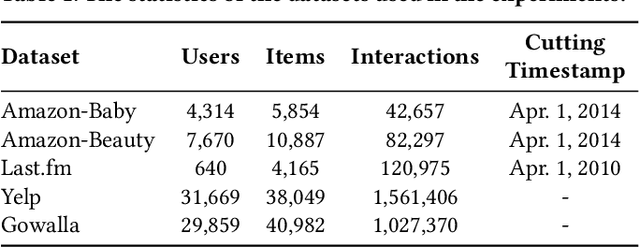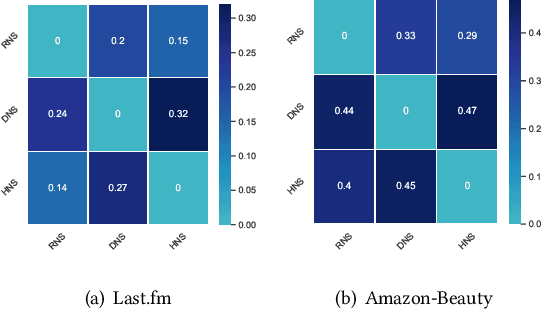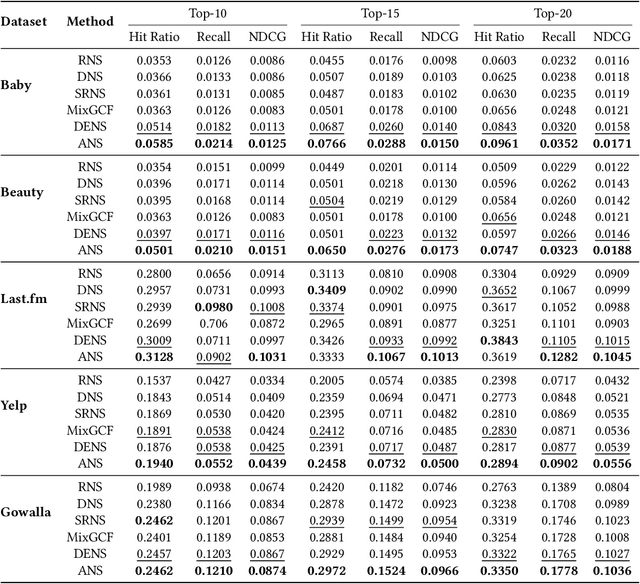Augmented Negative Sampling for Collaborative Filtering
Paper and Code
Aug 11, 2023



Negative sampling is essential for implicit-feedback-based collaborative filtering, which is used to constitute negative signals from massive unlabeled data to guide supervised learning. The state-of-the-art idea is to utilize hard negative samples that carry more useful information to form a better decision boundary. To balance efficiency and effectiveness, the vast majority of existing methods follow the two-pass approach, in which the first pass samples a fixed number of unobserved items by a simple static distribution and then the second pass selects the final negative items using a more sophisticated negative sampling strategy. However, selecting negative samples from the original items is inherently restricted, and thus may not be able to contrast positive samples well. In this paper, we confirm this observation via experiments and introduce two limitations of existing solutions: ambiguous trap and information discrimination. Our response to such limitations is to introduce augmented negative samples. This direction renders a substantial technical challenge because constructing unconstrained negative samples may introduce excessive noise that distorts the decision boundary. To this end, we introduce a novel generic augmented negative sampling paradigm and provide a concrete instantiation. First, we disentangle hard and easy factors of negative items. Next, we generate new candidate negative samples by augmenting only the easy factors in a regulated manner: the direction and magnitude of the augmentation are carefully calibrated. Finally, we design an advanced negative sampling strategy to identify the final augmented negative samples, which considers not only the score function used in existing methods but also a new metric called augmentation gain. Extensive experiments on real-world datasets demonstrate that our method significantly outperforms state-of-the-art baselines.
 Add to Chrome
Add to Chrome Add to Firefox
Add to Firefox Add to Edge
Add to Edge